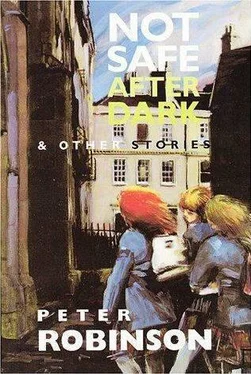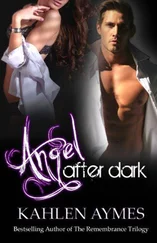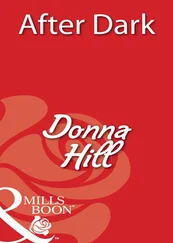Banks’s bedroom, he had been amazed to discover that summer, was almost exactly as it had been when he first left home. Only the wallpaper, curtains and bedding had been changed. The bed itself was also the same one he had had since he was about twelve.
As he squeezed himself between the tightly tucked sheets on his narrow bed, he remembered how he used to hold the old transistor radio to his ear under the sheets, listening to Radio Luxembourg amidst the whistles and crackles. First, Jimmy Saville playing the latest top-ten hit from ‘member number 11321’, Elvis Presley. Then, a few years later, came the pirate stations, with even more static and interference: John Peel playing the Mothers of Invention, Jefferson Airplane and Country Joe and the Fish, names from another world, music so startling and raw it transcended even the poor radio reception.
Banks’s eyes were too tired and scratchy from the smoky pub to read his Graham Greene, so he put on the Cecilia Bartoli CD of Gluck arias and listened as he drifted towards sleep.
As he lay there, he couldn’t help but think about Geoff Salisbury. Something about the man put Banks on his guard. It wasn’t just the wrong change – that could have been an honest mistake – but the manner in which he seemed to have insinuated himself into the lives of Banks’s parents, the ease with which he breezed in and out of the house. Banks wouldn’t be surprised if Geoff had a key. He switched off the CD and turned on his side, trying to shake off the uneasy feeling, telling himself he was being too mistrusting, and that he probably only felt this way because he felt guilty he wasn’t taking care of his ageing parents himself. He knew he ought to be glad that someone was doing the job; he only wished that someone wasn’t Geoff Salisbury.
Banks awoke with a start the following morning and experienced a moment of absolute panic when he had no idea who or where he was. It was as if he had woken from a coma after many years, all memory gone and the world around him totally changed, or as if he had been abducted and had woken up in an alien spaceship.
But it only lasted a second or two, thank God, and after that he managed to orient himself and his heartbeat slowed to normal. He was in his old bedroom, of course, the room he had slept in between the ages of twelve and eighteen. It was at the back of the house and looked over back yards, an alleyway and a stretch of waste ground to the north, where he and his friends used to play. When Banks looked out of his window, he noticed that the builders had moved in since his last visit and laid the foundations for yet more houses. As if Peterborough needed to grow any more. Since the mid-sixties, when the developers decided to make it a catchment area for London’s overcrowded suburbs, it had done nothing but grow, swamping outlying villages with housing estates and business parks. The planners and promoters said it blended old and new in unique and interesting ways. Even so, Banks thought, King Paeda, who had founded the city, would turn in his grave.
On a Saturday morning, the building site was deserted; concrete mixers sat idle and quiet, and the thick sheets of polythene covering pallets of bricks or boards flapped in the wind. It was another grand autumn morning: sunshine, bright blue sky and a cool wind to make everything look and feel fresh. Banks checked his watch. It was after nine o’clock, and he was surprised he had slept so long and so deeply; he couldn’t remember having any dreams at all. He listened for sounds of life from downstairs and thought he could hear talking on the radio and dishes rattling in the sink. They were up.
Desperate for tea or coffee, Banks dressed quickly and made his way downstairs. In the living room, his father looked up from his paper and grunted, ‘Morning, son.’
‘Morning, Dad,’ Banks replied, glancing out of the window to make sure his car was still there. It was. His father’s newspaper rustled back into position, and the local radio station, according to the DJ, was about to play a request for ‘Memories Are Made of This’ by Val Doonican, for Mrs Patricia Gaitskell, of 43 Wisteria Drive, Stamford. Jesus, thought Banks, he could have been caught in a time warp while he slept, back to the B-side of 1967. Perhaps that was why he had felt so disorientated the minute he awoke.
He walked through to the kitchen, where his mother, washing the breakfast dishes, gave him a cursory glance and said, ‘Well, you’ve decided to get up at last, have you?’ It was exactly what she used to say when he was a teenager and liked to lie in bed most of the morning. The only thing that saved him from seriously doubting his sanity was the little television on the kitchen table showing a breakfast programme. That hadn’t been there all those years ago; nor had breakfast television.
Banks made some comment about having had a long drive and put on the kettle. ‘Want a cup of tea?’ he asked his mother.
‘No, thanks. We had ours ages ago.’
‘Well, you could have another.’
She gave him a withering look, and he busied himself looking for the tea bags, telling himself that his parents really weren’t being especially nasty to him. They had their routine; it just took a little getting used to.
‘They’re where they’ve always been,’ his mother told him.
That didn’t help much, as he couldn’t remember where they’d always been. A terracotta jar in the cupboard with TEA engraved on the front looked promising, but it turned out to be empty. Beside it, however, Banks found a jar of instant coffee. Might as well, he thought. As long as you convince yourself it’s a different drink, not really coffee at all, then it doesn’t taste too bad. The kettle boiled and Banks made himself a cup of instant coffee. Specks of undissolved powder floated on the surface no matter how much he stirred it.
‘Don’t you want any breakfast?’ his mother asked, drying her hands on her pinafore. ‘We got some Sugar Puffs in for you specially. You always used to like Sugar Puffs.’
When I was about twelve, thought Banks. ‘I’ll give them a miss this morning,’ he said. ‘Maybe tomorrow.’
He wandered into the living room again, his mother not far behind. Val Doonican had given way to the Searchers singing ‘Some Day We’re Gonna Love Again’. An improvement, Banks thought. Funny how the Searchers were exactly the kind of ‘pop rubbish’ his parents dismissed thirty-five years ago, but now they were as acceptable as Val Doonican.
Banks needed a newspaper to complete his morning ritual. His father was still buried deep in the Daily Mail , which, being a Labour man, he only read so he could find things to complain about. The Mail wasn’t Banks’s kind of paper anyway. No real meat on its bones. Especially at the weekend. He needed something with a bit more writing and fewer pictures, like the Independent or the Guardian .
‘I’m off to the newsagent’s for a paper,’ he announced. ‘Anything I can get for you?’
‘You’ll be lucky if they’ve got any left at this time,’ his mother said. His father just grunted.
Banks took their responses as a ‘no’ and set off. In the house next door the upstairs windows were all open and music thudded out. It definitely wasn’t Val Doonican or the Searchers; more like Nine Inch Nails or Metallica. Banks studied the house. There were no curtains on the windows, and the front door was wide open. As he was looking, a scruffy couple walked out onto the overgrown path. They looked like Fred and Rosemary West on acid. The man’s eyes, in particular, reminded Banks of the opening of Vertigo .
‘Morning,’ said Banks. ‘Lovely day, isn’t it?’
Читать дальше










![Джеймс Чейз - Not Safe to Be Free [= The Case of the Strangled Starlet]](/books/417649/dzhejms-chejz-not-safe-to-be-free-the-case-of-the-thumb.webp)

